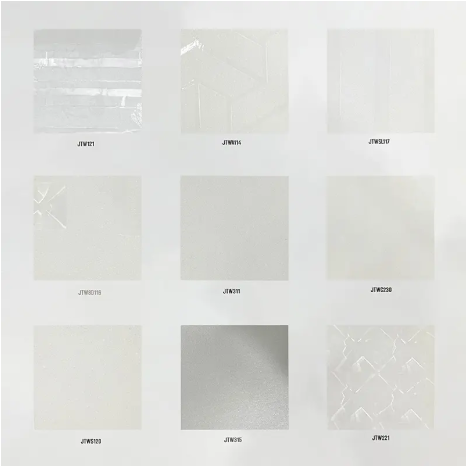Factors Influencing Window Film Longevity
Quality of Film Material
The longevity of window films is significantly influenced by the quality of the film material used. High-quality films made from durable polymers often last longer because they resist UV rays and heat more effectively. Manufacturers often provide warranties that give an indication of expected longevity, ranging anywhere from 5 to 15 years, depending on the material's quality. Additionally, films with higher Visible Light Transmission (VLT) tend to last longer as they undergo less stress from thermal expansion.
Installation Method and Expertise
The method and expertise of installation play a critical role in the lifespan of window films. Professional installation is crucial, as improper techniques can lead to early degradation of the film. Certified installers adhere to industry standards which greatly enhance the lifespan and effectiveness of window films. Research shows that most warranty claims are related to installation errors rather than issues with the product quality.
Environmental Exposure Factors
Window films are exposed to varying environmental conditions, which can significantly impact their longevity. Extreme temperatures and high humidity levels are common factors that can cause wear and tear over time. Additionally, areas with heavy pollution may necessitate more frequent replacements due to the accelerated chemical degradation. Understanding these environmental exposure factors can help in choosing the right film and planning for its maintenance.
Maintenance Practices
Proper maintenance practices are pivotal in extending the lifespan of window films. Regular maintenance, including appropriate cleaning and care, can significantly extend the life of a window film. It's important to avoid harsh chemicals and abrasive cleaning tools to maintain the film's integrity. Studies indicate that well-maintained films can last up to 10-15% longer than those that are neglected, highlighting the importance of regular inspections and gentle cleaning methods.
Average Lifespan Expectations by Film Type
Solar Control Films (10-15 Years)
Solar control films are engineered to reflect solar heat, offering durability that often extends their lifespan to 10-15 years. These films utilize advanced technology to ensure maximum effectiveness in energy savings and UV protection. Consistent usage and environmental exposure can eventually affect performance, necessitating a replacement within this timeframe under normal conditions. However, manufacturers frequently highlight that with proper maintenance, such as regular cleaning and avoidance of harsh chemicals, solar control films can exceed their expected lifespan. High-quality films thus provide a robust return on investment, both in terms of longevity and enhanced comfort.
Decorative/Privacy Films (5-10 Years)
Decorative and privacy films, while offering an aesthetic boost, generally exhibit a shorter lifespan, ranging from 5 to 10 years. This reduced durability is attributed to their less sturdy material composition compared to solar control films. Environmental factors, such as exposure to direct sunlight and varying weather conditions, along with maintenance routines, play a significant role in determining their life expectancy. Most experts advocate for the replacement of these films within the specified timeframe to maintain their visual appeal and utility. As such, users should monitor environmental conditions and follow proper care guidelines to optimize their longevity.
Safety/Security Films (15+ Years)
Safety and security films are constructed to withstand substantial impacts and often feature robust UV protection, making them some of the most durable options available. These films typically boast a lifespan exceeding 15 years, provided they are expertly installed and well-maintained. Studies consistently demonstrate that when installed by professionals, the longevity of safety films far surpasses that of standard window films, preserving both security and integrity. The longevity of such films offers significant long-term value, justifying their initial investment by continuing to provide safety benefits well beyond the expected timeframe.
Recognizing When to Replace Window Film
Visible Fading or Discoloration
Visible fading or discoloration is a clear indicator that window film needs replacing. Over time, exposure to sunlight and other environmental factors can cause degradation that affects the effectiveness of the film and its aesthetic value. When you notice significant color changes from the original state, it's a sign that the film's protective properties are compromised. Research has shown that fading can start within a few years, particularly in areas with high UV exposure, such as windows facing direct sunlight. Therefore, timely replacement is crucial to maintaining optimal performance and appearance.
Bubbling, Peeling, or Cracking
Bubbling, peeling, or cracking of window film are prominent signs of deterioration often resulting from improper installation or extreme weather conditions. These defects indicate a failure in adhesion, suggesting the need for an immediate replacement to avoid further damage to the glass beneath. Experts emphasize the importance of addressing these issues promptly, as they can exacerbate and deteriorate the window film's function. In climates where harsh weather is common, such occurrences can be minimized by ensuring correct installation and periodic checks.
Reduced Performance Metrics
When window film no longer performs efficiently, indicating reduced heat control or UV protection, it suggests a decline in effectiveness. Regular assessments of performance metrics are essential in identifying when films start to underperform. Studies have demonstrated that significant decreases in thermal regulation and UV protection become apparent as window films age, particularly in those exposed to constant sunlight. Regular checks and timely replacements are necessary to ensure that the window film continues to serve its purpose effectively and contributes to energy efficiency.
Essential Window Film Maintenance Techniques
Proper Cleaning Methods
To maintain window films effectively, using a mild soap and water solution is highly recommended. This cleaning method is gentle and prevents damage to the film, ensuring its longevity. Experts suggest using a soft cloth or sponge when cleaning, as abrasive materials could scratch the surface of the film, reducing its effectiveness. Regular cleaning is essential to prevent the build-up of dirt and grime, which can accelerate wear and tear, ultimately diminishing the film's performance.
Avoiding Abrasive Materials
Avoiding the use of abrasive materials such as steel wool or harsh scrubbing pads is critical for maintaining window films. Research indicates that films subjected to abrasive cleaning methods show accelerated signs of degradation, as scratches impair both appearance and functionality. Utilizing soft, safe materials for cleaning not only helps preserve the film's aesthetic but also maximizes its lifespan, ensuring it continues to perform effectively over the years.
Protective UV Treatments
Applying UV protective treatments to window films can significantly enhance their durability and lifespan. Such treatments shield the film from harmful ultraviolet rays, which can lead to discoloration and decreased performance over time. Experts recommend reapplying these UV treatments every couple of years to maintain their efficacy. Studies show that these protective measures help preserve the film's clarity and improve its heat rejection capabilities, making them a worthwhile investment for long-term use.
Professional Installation vs. DIY Impact on Durability
Benefits of Certified Installers
Opting for certified installers comes with several advantages that contribute to the prolonged durability of window films. Firstly, certified professionals are skilled in best practices ensuring the film is installed correctly to maximize its lifespan. Secondly, many manufacturers offer extended warranties for window films installed by such professionals, enhancing the value of your investment. Additionally, expert installation minimizes common mistakes, such as misalignments and air bubble formations that could lead to early failure.
FAQ Section
What factors affect the longevity of window films?
The quality of the film material, installation method and expertise, environmental exposure factors, and maintenance practices significantly impact the longevity of window films.
How does professional installation impact window film duration?
Professional installation enhances the film's lifespan and effectiveness by adhering to industry standards, reducing the likelihood of errors such as misalignments and air bubble formations.
What is the average lifespan of different types of window films?
Solar control films typically last 10-15 years, decorative/privacy films last 5-10 years, and safety/security films last over 15 years with proper installation and maintenance.
How can I maintain my window film to maximize its lifespan?
Regular cleaning with mild solutions, avoiding abrasive materials, and applying protective UV treatments can help maintain window films effectively and maximize their lifespan.
What are signs that window film needs replacement?
Signs indicating the need for replacement include visible fading or discoloration, bubbling, peeling, or cracking, and reduced performance in heat control or UV protection.

